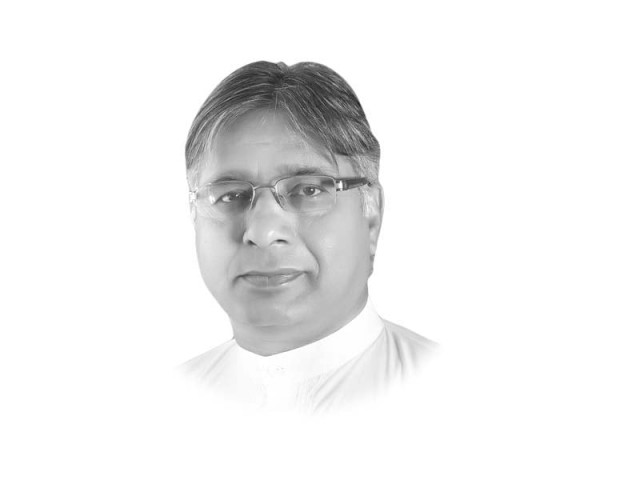Census 2016: the way forward
Could the CCI's decision to postpone the census be for the best?

The writer is a freelance journalist, specialising in International law, rural development and public policy and a director of Centre for Social Justice
Prior to the postponement, concerns were raised in Sindh and Balochistan’s political quarters which made people realise that the population census must accompany a wider ownership. Conversely, it might end up in a divisive outcome as the 1981 census did. Hence, the time available now ought to be used to address the technical and institutional gaps alongside the political issues.
An additional questionnaire should be included, that incorporates categories for differently-abled persons, gender and religion and linguistic minorities. The experts at the Bureau of Statistics need to understand that it is important for the nation to know the number and conditions of Sikhs and Buddhists, as well as migrants, gypsies and transgender people in the country. Moreover, their segregated data would be necessary for practical purposes.
The quality of training and motivation of the enumerators is a serious concern. The school teachers, who are usually employed for data collection, are often fatigued and lethargic. On the other hand we have over 40,000 community-based and non-governmental organisations, many of which have proven their mettle in campaigns such as polio vaccination and election monitoring. It would be advisable to use these organisations with requisite preparations.
Apart from the security needs of the enumeration staff, the armed personnel were involved in the census in 1998 to ensure neutrality and impartiality in enumeration. But it also carries the risk of embroiling the army in controversies if the outcome of the census entails disputes and discontentment. Engaging the army has a price tag too, that might consume around half the resources allocated in the budget (Rs15 Billion) for the census. Therefore, the role of the army ought to be to economise on resources as well, while the impartiality and credibility of the census should be ensured by using participatory means.
Essentially, the entire process; from a political consensus to enumeration and to producing data, should include important stakeholders to dispel fears about data manipulations. Fairness and transparency in conducting the census could be ensured by adopting a people-centric approach which can also enhance the quality and usability of census data.
Owing to an asymmetrical evolution of NADRA, the Election Commission and Population Census Commission, these entities have been collecting and managing national data independent of each other, involving huge costs. The classical argument in favour of the arrangement is that all three data collections vary in purpose, timing and use. Fair enough, but how do we reconcile the data discrepancies during inter-departmental use? For instance, when voters go to the polls and their record with the election commission does not match with their CNIC/NADRA details. The population census will also use CNICs for verification/stratification. So there already is an inbuilt interdependence between the three. Why can’t the three entities collaborate and synergise for data collection?
Given the technical advancement, it is not difficult to harmonise the databases for mutual use and benefit. Assuming that NADRA’s record is useable in the given time and space, even if some verification, removing errors and discrepancies was required. NADRA can start with helping separate citizens from migrant population. The task may be tedious but it is doable with NADRA and not with the Census Commission. The data produced by the census will always remain questionable without this exercise. Furthermore, besides addressing the skepticism causing political unrest, particularly in Baluchistan and Sindh, it would be necessary to ascertain the number of migrants, with reliability, for planning and development.
NADRA’s work in this respect should lead up the census, which according to claims, already has a database of 93 per cent of the population. With the refined data of NADRA in hand, the Census Commission can benefit from it beyond the migrants issue. To save on the cost, preparation of the electoral rolls can also accompany the census though the delimitation of constituencies may be deferred till the outcome of the census — probably in 2017.
The delayed census ought to be taken as opportunity to reduce the margin of errors and discrepancies in the national database, to build inter-departmental cooperation and inculcate political cohesion, replacing passive and skeptical participation. Therefore, sequencing three data collections as a holistic activity will help consolidate national integration.
Nevertheless, consensus before the census will be necessary at all levels, which requires a process-oriented rather than a task management approach, a different undertaking than handling protest against the privatisation of PIA or reducing prices of petroleum products at will.
Published in The Express Tribune, March 10th, 2016.
Like Opinion & Editorial on Facebook, follow @ETOpEd on Twitter to receive all updates on all our daily pieces.














COMMENTS
Comments are moderated and generally will be posted if they are on-topic and not abusive.
For more information, please see our Comments FAQ